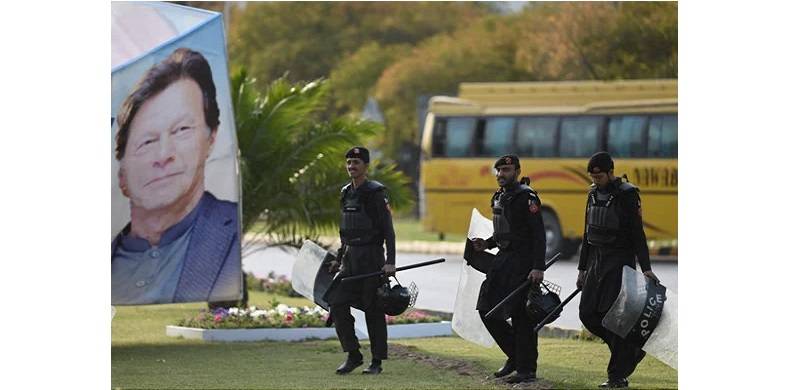
Stereotypically, the Machiavellian doctrine is associated with moral expediency and deviousness in political actions, and the justification of all political means - even the most unscrupulous - when the interests of the state are at stake. Yet, Pakistan is currently facing the opposite: where the state is at stake precisely due to the divorce of politics from private morality. Under these circumstances, Pakistan is suffering from severe institutional crises, and our shortsighted politicians are failing to learn from history or consider the potential ramifications of their actions on the country's fragile economy and mounting security threats. Institutions play a crucial role in reducing uncertainty and balancing the interests of different parties. They are humanly devised constraints that structure political, economic, security, and social interactions and include laws, rules, customs, and norms to preserve the social order and safeguard citizens' rights. Successful institutions are inclusive and pluralistic, while extractive institutions only protect the interests of a small group of people who rely on others' income, ultimately leading to a nation's failure.
Unfortunately, Pakistan's current discourse is characterised by personal interests, irrational narratives, and a lack of institutional decency, which has had a significant impact on the country's political well-being. Political parties fail to consider minimum consensuses within their political feuds, leading to untenable coalitions that are unable to manage the country's inflation and mismanagement effectively. The legislature is passing bills without full representation or justification, while the opposition is doing everything but participating in the parliament. The political immaturity and street politics of the PTI have paved the way for PML-N to challenge other institutions, further complicating the situation. None of the political entities in Pakistan can handle the current crisis, and we need to prioritize constitutional supremacy and bring negotiating tolerance among all stakeholders. The politicization of the civil service, unqualified political appointees, institutional dependencies on donor organizations, and insufficient interest in improving public welfare have all contributed to Pakistan's existing institutional crises.
The existing institutional crises are reflecting the state's outright neglect, the elite's interests, and incompetence, without any consideration of the public or the state's survival. The PDM's coalition parties are exceeding their limits by boycotting the apex court's decision and highlighting divergences among the supreme judges. If politics continues to prioritise necessity and institutional fanaticism over the country's interests, it will create an opportunity for external powers to intervene in the system. The organized, disciplined institutions will eventually overwhelm the ineffectual ones, as experienced in the past. Thus, Pakistan must adopt a sustainable political system based on the rule of law and constitutional sovereignty.
Unfortunately, Pakistan's current discourse is characterised by personal interests, irrational narratives, and a lack of institutional decency, which has had a significant impact on the country's political well-being. Political parties fail to consider minimum consensuses within their political feuds, leading to untenable coalitions that are unable to manage the country's inflation and mismanagement effectively. The legislature is passing bills without full representation or justification, while the opposition is doing everything but participating in the parliament. The political immaturity and street politics of the PTI have paved the way for PML-N to challenge other institutions, further complicating the situation. None of the political entities in Pakistan can handle the current crisis, and we need to prioritize constitutional supremacy and bring negotiating tolerance among all stakeholders. The politicization of the civil service, unqualified political appointees, institutional dependencies on donor organizations, and insufficient interest in improving public welfare have all contributed to Pakistan's existing institutional crises.
The existing institutional crises are reflecting the state's outright neglect, the elite's interests, and incompetence, without any consideration of the public or the state's survival. The PDM's coalition parties are exceeding their limits by boycotting the apex court's decision and highlighting divergences among the supreme judges. If politics continues to prioritise necessity and institutional fanaticism over the country's interests, it will create an opportunity for external powers to intervene in the system. The organized, disciplined institutions will eventually overwhelm the ineffectual ones, as experienced in the past. Thus, Pakistan must adopt a sustainable political system based on the rule of law and constitutional sovereignty.

